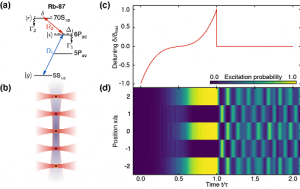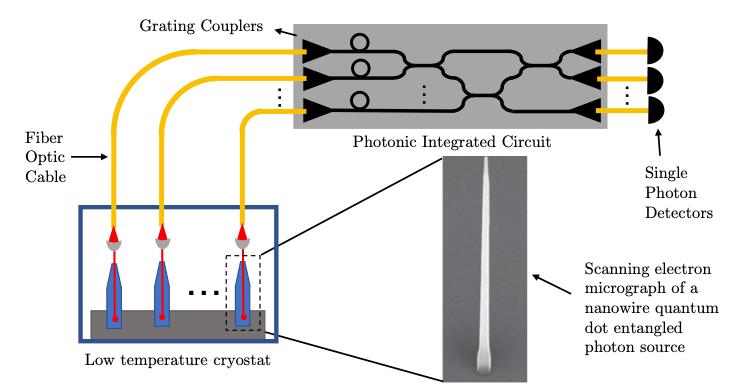Summary
Quantum simulators enable probing the static and dynamic properties of correlated quantum many-body systems that would otherwise be numerically inaccessible using classical simulators. We are developing quantum simulators based on arrays of neutral atoms excited to Rydberg states. Such Rydberg atom arrays are advantageous for simulating the dynamics of interacting spin systems (Ising spin models) in higher dimensions and arbitrary geometries. Our first simulator uses alkali atoms trapped in two-dimensional arrays of optical tweezers. It is currently being designed, built and operated by our team. It will be used for studying many-body quantum dynamics, non-equilibrium physics, and quantum chaos. We will explore these areas after optimizing our control gates and engineering interactions using coherent excitation to Rydberg states. We will also explore novel ideas presented by the early adopter community, such as approaches to gain better insight into advanced materials. Finally, as this project involves the development of novel quantum hardware, including an optimal control toolbox and advanced laser systems, it may lead to further application to quantum enhanced sensing and precision metrology.

Figure 1. Classical simulation of the dynamics of a chain of five interacting atoms exhibiting coherent many-body oscillations after being adiabatically driven across a phase transition from a disordered state into an ordered state and suddenly quenched into a far-from-equilibrium state. Quantum simulators enable extending those simulation results into numerically inaccessible regimes for larger system sizes and higher dimensions.
Related Content

Reliably operating noisy quantum computers
Summary The overall goal of the project is to develop practical methods to be able to reliably run useful applications on near-term quantum computers. This requires identifying and overcoming the ubiquitous errors that currently limit quantum computing capabilities. Traditional methods of quantifying errors in quantum computers fail to predict how errors affect the output of […]
January 22, 2020

Photonic Quantum Processor
Photonic quantum processors based on integrated quantum photonic circuits require entangled photon pairs to perform quantum computations. However, current state-of-the-art technologies utilize probabilistic entangled photon sources with limited pair-extraction efficiencies, negatively affecting the computation speed. This project aims to boost the speed of on-chip quantum operations by using bright, on-demand entangled photon sources with an […]
April 24, 2023

Novel Infrared Camera Based on Quantum Sensors for Biomedical Applications
Summary In this project we develop a novel infrared camera with low noise and high detection efficiency for biomedical applications of optical coherence tomography (OCT) using quantum materials. OCT is a technique used to image the back of the eye and allow for the diagnosis of detrimental eye conditions, for e.g., macular degeneration, diabetic retinopathy […]
March 13, 2019

Chiral Quantum Antenna Based on Multilayer Metasurface
Summary Individual atoms can act as stationary qubits and thus serve as nodes in quantum computing networks or as memories for quantum repeaters. However, to successfully use qubits based on single atoms suspended in free space, photons emitted by a single atom need to be efficiently collected. Conventionally, this can be done with high […]
September 20, 2018

